QuestionQUESTION: Thanks for helping me. I have a 1 1/2 year old brussels griffon male, neutered. My daughter got him for me from a friend (breeder). He was 9 months old and had lived his life in a crate. He was free because he had not been sold (he had a bad ear clipping job - sort of a half moon shape versus the short clip). According to my daughter he had never had his feet on the ground. He has a very sweet personality and has been perfect except when my hubby or grandson sit on the couch he barks constantly at them. I've been taking him into another room when he does it. He stops barking, but it would be great to correct the behavior. He also has bonded with me (my husband works long hours/6 days a week), so if I need someone to take him out while I'm away, they even have trouble catching him. On the other hand, he sleeps with my husband and I, and if he wakes up in the night he goes to my husband and licks him. Often (but not always) my husband has food on the coffee table when the barking starts and I could see if that was provoking him, but food is not necessary for the barking. I enjoy him so much that I just got his little sister (she's 11 weeks old). By-the-way, I insisted the breeder's daughter play with her and take her out frequently or I wasn't going to get her. She loves everyone! He plays with her constantly and they snuggle up together to sleep during the day. I took him to obedience school at Mississippi State and he was very social with all the other dogs and owners. And he was very quick to learn. We take a 3 mile walk most days on our river walk and he wants to meet every dog he sees. So there are no aggression issues (even with food), just the social issues/barking at home. I look forward to hearing from you and I commit to do whatever you advise me. Kay
ANSWER: I'm actually surprised that you would acquire another puppy from an abusive, and very bad, breeder. Luckily for you, your first dog's behavior demonstrates that the line he was bred from is temperamentally sound; so-called breeders who confine (and do not socialize) puppies should be jailed.
Something about the couch and the male members of your household (I wonder if this behavior persists with male guests??) is provoking the dog's excitement. By leading him away (most likely putting your hands on him, unless you have him on leash) you may be inadvertently rewarding the behavior (since touch is a primary reinforcer.) Does the dog have access to the couch? Do the male household members displace him (does he run away) when they sit down? When did you first observe this behavior, how long has it continued, what (if anything) has your husband, or grandson, done during the dog's barking? I'd like you to answer these questions so I can more fully understand the environment and contribution of humans towards the dog's behavior. Meanwhile....
Keep a short lightweight nylon leash on the dog in the house. The next time your husband or grandson sit on the couch and the dog begins to bark at them, YOU pick up the leash and remain in the room with them. Observe the dog closely for body signals: hackles raised? tail set low? ears back? (fear); hackles raised, tail set high, ears up and forward (confrontational). Keep a record of this for your report back to me. Whatever you see, do NOTHING: say nothing, do not touch the dog, do not look at the dog, if you must speak of him use the nomenclature "rover", and WAIT for him to CALM DOWN (visibly, relaxed posture) then reward him with eye contact and praise. Repeat this until the dog begins to reconsider his reaction, i.e., you see him hesitate before offering the barking behavior. The moment he hesitates, praise him and wait for him to visibly calm and accept their presence, and then have your husband or grandson toss a tiny bit of food treat (small bit of cheese) toward the dog. In other words, do not reward the dog's anxiety (barking); do not remove the dog (but rather, force him to reevaluate what is happening without your input); reward the dog for NOT showing alarm (verbally) and ultimately food reward the dog for accepting their presence. We need to change his perception of their sitting on the couch by removing anything that might possibly be rewarding him, forcing him to reevaluate his reaction (because nothing happens that rewards him and there is nothing fearful occurring), and then rewarding his acceptance.
Please answer the questions I posed above but meanwhile attempt the behavior modification I suggested.
---------- FOLLOW-UP ----------
QUESTION: I remembered something that might be of importance. For the first few months we had Lil' Bear he didn't bark at all! I remember telling someone he was perfect...he's loving, doesn't shed and doesn't bark. I looked up his breed and found that they don't make good guard dogs. I assumed that was because they don't bark. The first time the barking started I received a call around 1 am that my mom was going to the hospital with her tongue and throat swelling. I went to the hospital and when I got home around 10 am my husband said Lil'Bear had barked so much after I left that he had to put him out of the bedroom and close the door. He's been barking ever since. I observed him last night (with Tom) and this morning (with Michael). He bends his front legs (like a half bow), his ears go quickly back and up with each bark, and his tail is up. His tail is bobbed so it's somewhat up all the time. No hackles. I'll continue to track. Both Tom and Michael are ignoring the barking. Last night Tom took off his sock, threw it in the floor and Lil' Bear started playing with it (stopped barking). This morning he barked at Michael till something else caught his attention, then he stopped. In the past, when I was going into the other room with him, I could point toward the hallway, tell him to go and he would. I didn't have to pick him up. Again, thanks for your help. Tom's just come in and the barking has begun so I will go and observe. K
ANSWER: You're doing a GREAT JOB. Obviously, the dog is barking from fear but his body language suggests it may have originated from excitement (sounds like a play bow but the ears give a different signal.) Try the confinement (leash) response; keep control over the hubby (lol); consistently reward the dog's acceptance and calm state. This is a toy breed and they bark A LOT and are very sensitive. You're doing great, keep up the good work.
---------- FOLLOW-UP ----------
QUESTION: Thanks, Jill. Just a follow up on Lil' Bear. He's hardly ever barking when I'm present - an occasional low sort of growl but I can say "quiet" and he will stop. But when I leave the room he starts up with vigor. I just took Lucy - the little one - out to poop, and as soon as the door closed on us I heard him begin to bark at Tom. He barked until he heard the door open when we came back in and he was immediately quiet. Sometimes I take them out at the same time, but when she's clearly getting ready to go I just take her out. Tom ignored his barking and we were only out a couple of minutes, but it seems this is the next thing to tackle. Thanks for your advice! K
AnswerTom must in some way be contributing to this fear response in the dog (totally without intention.) It aggravates and frustrates him and his body language MUST be signaling the dog (I don't blame him, this is annoying.) He has to change his attitude visibly every single time the dog barks at him. YOU have to get up and leave every time the dog growls at Tom; put a door between you and the dog for ten seconds (that's all it takes.) Saying "quiet" may be construed as reward (direct communication, even negative.) Try some play training (since Tom's sock was such an easy fix and the dog seems highly distractable, meaning his fear isn't pronounced, but his barking IS somehow being rewarded.) Some old socks with tennis balls inside (knotted so the ball can't get out) -- but DISTRACT the barking before Tom tosses it (so as not to reward the barking and the emotional cause of it.) Consistent interaction with play training, after distracting the behavior so as not to actuall TRAIN THAT (something you don't want!) should help enormously. it will relax the dog AND the husband and should help speed up a resolution to this problem. Here's a play training link I came across:
http://www.dogplay.com/Activities/obedience.html

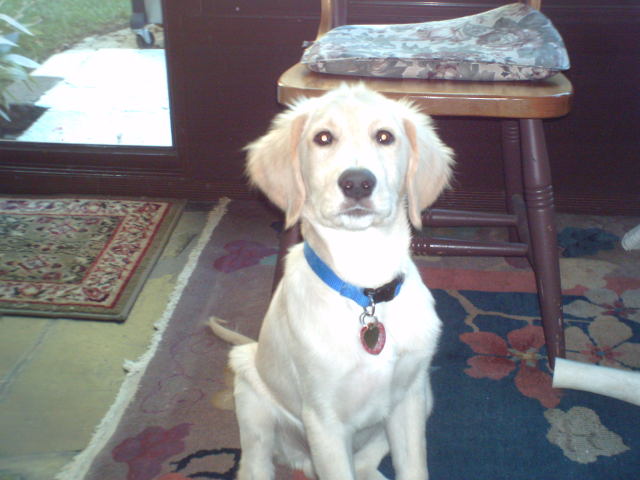 my 7 month old golden changed for the worse
QuestionRiley at 6 months
QUESTION: I got a gold
my 7 month old golden changed for the worse
QuestionRiley at 6 months
QUESTION: I got a gold
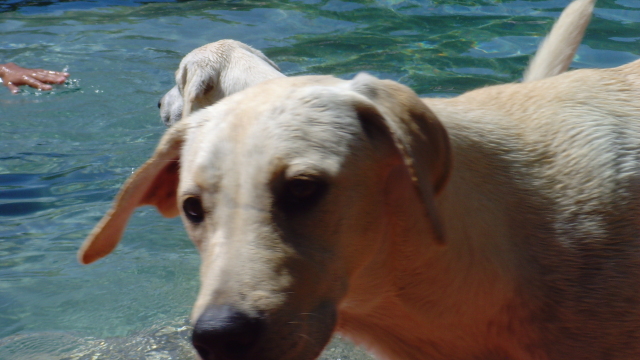 Psychological trauma
Question
Izzy
I recently took my 1 year old dog to a fr
Psychological trauma
Question
Izzy
I recently took my 1 year old dog to a fr
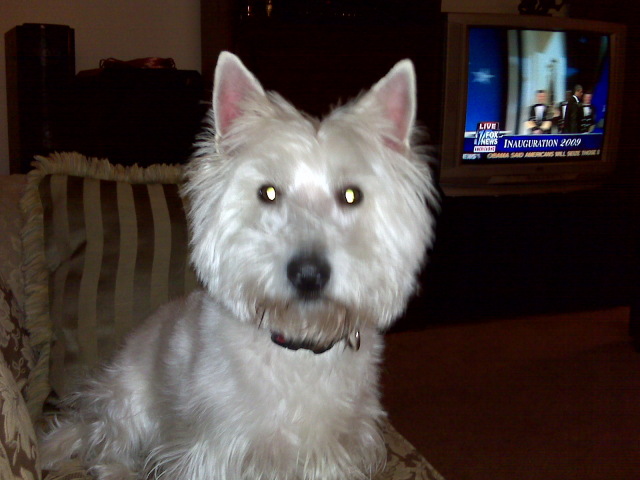 Companion for Lonley Westie
Question
Shannon
We have a 5-year-old neutered Westie w
Companion for Lonley Westie
Question
Shannon
We have a 5-year-old neutered Westie w
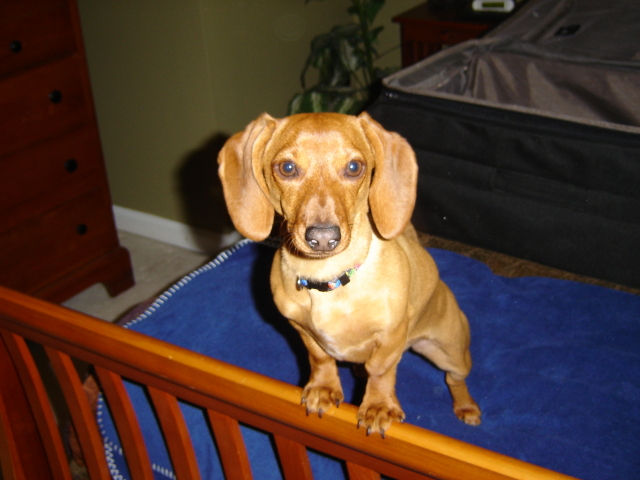 Mini Daschund with anxiety issues
QuestionAbigayle
QUESTION: I have a 3 1/2 yr old
Mini Daschund with anxiety issues
QuestionAbigayle
QUESTION: I have a 3 1/2 yr old
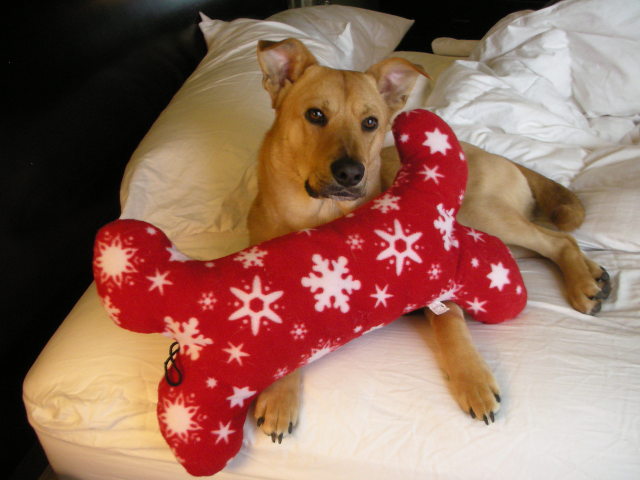 Very Scared Dog
Question
Happy
My dog is 17 months old and is a mixed b
Very Scared Dog
Question
Happy
My dog is 17 months old and is a mixed b